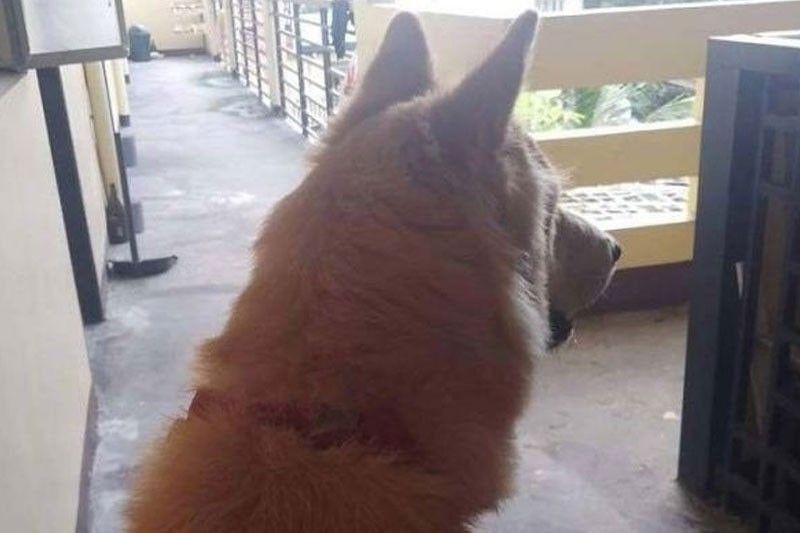Collective fight against rabies

Rabies, though largely preventable, remains as one of the deadliest threats to the health of many Filipinos. Despite efforts to control and prevent the disease, the Philippines reports one of the highest incidences of human rabies in the region and in the world.
Ironically, rabies affects a significant number of pet owners. With 64 percent of Filipino households having pets at home, there is bound to be an increased risk of exposure.
According to a report by the Department of Health (DOH), the number of recorded human rabies cases in the country increased in 2024, with a total of 169 cases from January to May – 13 percent higher than same period last year.
With the rising number of rabies cases in the country, the DOH again sounded the alarm and urged the public to vaccinate their pets, especially dogs and cats, to protect against this deadly disease. Likewise, the public is reminded to seek medical attention for animal bites.
Admittedly, controlling rabies in the Philippines is a challenge due to a myriad of economic and social factors. Often viewed solely as a public health issue, rabies is also an animal welfare concern. Vaccination plays a crucial role in combating this fatal disease, yet rabies persists largely due to the continued growth of the stray animal population – many of which are unvaccinated. Access to vaccines is another issue, particularly in rural areas where pet owners have limited access to veterinary services.
A colleague of mine had the chance to speak with Rina Ortiz, the president and founder of Biyaya Animal Care, an organization that aims to make a positive change in the companion animal welfare of the country.
Rina points to the “exploding stray population” as the main issue that needs to be addressed, and it begins with people being educated on the proper control via ‘trap, neuter, vaccinate and release (TNVR)’ procedure. “It begins with us being aware that the country cannot euthanize, adopt, rescue and shelter our way out of this problem. If we do kapon (neutering), then your numbers hopefully are arrested. Your growth numbers get arrested. Eventually, you will then save money on the impounding and on the vaccinating, to the point that you will start even having more money to just saturate vaccination of all the dogs,” she said.
While programs and laws to combat rabies have long been institutionalized, gaps on implementation of these remain, which is why controlling the disease requires a concerted effort between the government, the private sector, and local communities.
As the old saying goes, prevention is always better than cure.
In this regard, the government plays a crucial role in addressing the issue to ensure that the necessary resources are available to communities to address rabies. Sufficient funding should be allocated to make veterinary services available in all local government units (LGUs) and communities, especially those in remote areas.
Stricter implementation of a stronger animal vaccination campaign and stray population control program should also be implemented across local communities to minimize the risks of the disease.
Local health centers meanwhile should have sufficient post-exposure prophylaxis (PEP) to prevent and minimize deaths because of the disease.
However, funding remains a significant hurdle. According to Rina, billions of pesos are needed for the effective and widespread implementation of an anti-rabies vaccination program across the country. She also pointed out the logistical challenges, including transport, storage, and proper inoculation, particularly in areas far from Manila.
Rina suggested exploring new approach as to how local government units can provide support to each other via shared utilization of resources. She also proposed training regular people as inoculators, noting that current laws require veterinarians for vaccination drives.
The private sector can support these initiatives in a variety of ways. Pharmaceutical companies and veterinary clinics can help make vaccines more accessible and affordable while animal welfare groups can help promote mass vaccination campaigns, especially of stray animals. Corporate social responsibility programs of private firms can be leveraged to support mass vaccination drives, neutering services, and public information campaigns.
Equally important in the fight against rabies too is an effective and widespread education campaign that tackles not just the risks of the disease but the need for responsible pet ownership as well.
At an early age, children should be made aware of the risks of rabies so that proper medical attention can be given in case of exposure to the disease. Local health workers, schools, animal welfare groups, and community leaders can collaborate to implement a more robust information campaign so that Filipinos are properly informed about the disease and what they can do about it.
Educating people about responsible pet ownership is also crucial to encourage vaccination of animals and early reporting of potential cases of rabies. This can help significantly reduce the number of unvaccinated animals that pose a risk to the health of the community.
No life should be lost to a preventable disease such as rabies. By adopting a multi-faceted approach to fighting the disease, rabies can soon be a thing of the past.
Let us uphold our commitment to public health and animal welfare by working together to fight against rabies.
- Latest
- Trending






























